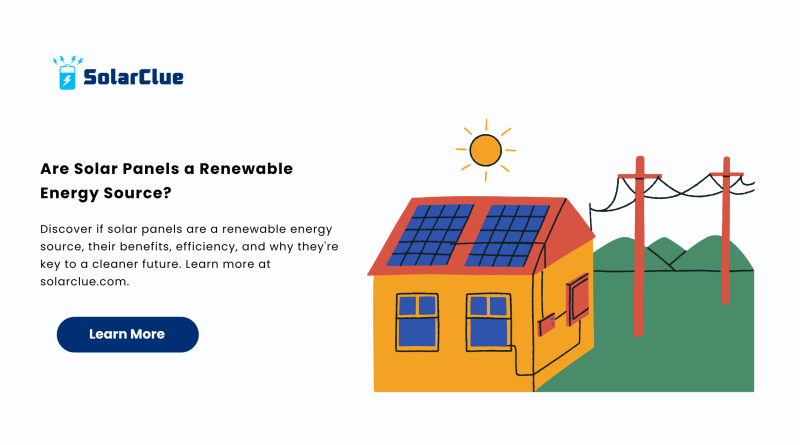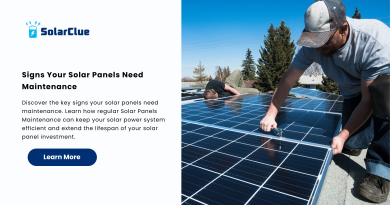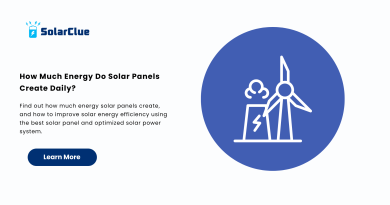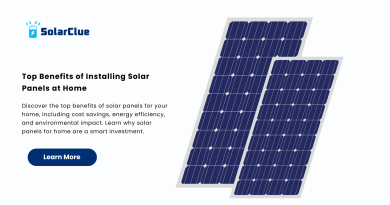Are Solar Panels a Renewable Energy Source?
Renewable energy refers to energy derived from natural processes that are replenished constantly. This includes sunlight, wind, geothermal heat, tides, and rain. These resources are virtually inexhaustible and environmentally friendly, especially when compared to fossil fuels.
Table of Contents
- 1 Understanding Solar Panels
- 2 How Solar Power Qualifies as Renewable
- 3 The Growing Popularity of Solar Energy
- 4 Benefits of Solar Panels
- 5 Solar Panel Efficiency Explained
- 6 Choosing the Best Solar Panel for Home
- 7 How Solar Panels Work
- 8 Installing a Solar Power System
- 9 Government Policies and Incentives
- 10 Is Solar Power the Future of Renewable Energy?
- 11 Common Myths About Solar Panels
- 12 Environmental Impact and Sustainability
- 13 Why Solar Energy is a Smart Investment
- 14 Where to Learn More About Solar Power
- 15 Conclusion
- 16 FAQs
Understanding Solar Panels
Solar panels are devices that convert sunlight directly into electricity using photovoltaic (PV) cells. These panels form a solar power system that generates clean, sustainable energy. Because the sun is an infinite source of light and heat, solar panels fall into the category of renewable energy technologies.
How Solar Power Qualifies as Renewable
Solar power is generated using sunlight, which is available globally and is not depleted by usage. As long as the sun exists, we have access to solar energy, making solar power systems a core part of renewable energy solutions.
The Growing Popularity of Solar Energy
Countries across the world are investing heavily in solar energy. With concerns over climate change and the depletion of non-renewable resources, solar power is emerging as a sustainable alternative. India, for example, is pushing for widespread adoption of solar panels for home and businesses alike.
Benefits of Solar Panels
1. Environmental Advantages
Using solar panels reduces reliance on fossil fuels and lowers greenhouse gas emissions. It helps in combating climate change and ensures a smaller carbon footprint.
2. Cost Savings
Over time, investing in the best solar panel significantly lowers electricity bills. Many governments offer incentives and subsidies, making it easier to adopt solar power systems.
3. Low Maintenance
Once installed, solar panels require minimal maintenance. Occasional cleaning and periodic checks ensure maximum solar panel efficiency.
Solar Panel Efficiency Explained
Solar panel efficiency refers to how much sunlight the panel can convert into usable electricity. Modern best solar panels can reach efficiency levels of over 20%, meaning they generate more power with less space.
Choosing the Best Solar Panel for Home
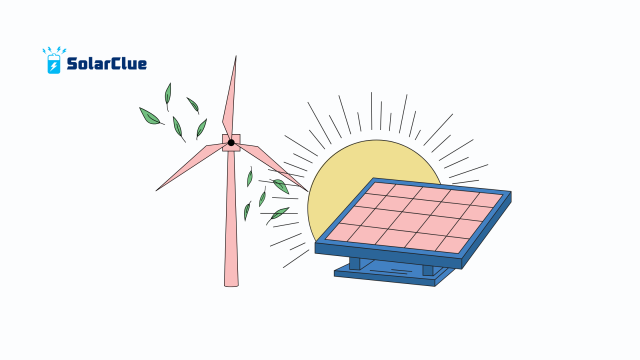
When looking for the best solar panel for home, consider efficiency, warranty, durability, and price. It’s crucial to match your household’s energy needs with the panel’s capacity to ensure maximum benefits.
How Solar Panels Work
Sunlight hits the solar panel, energizing electrons in the PV cells. This energy is converted into direct current (DC) electricity, which an inverter then converts into alternating current (AC) for household use. Excess power can be stored or fed back to the grid.
Installing a Solar Power System
Site Assessment
A professional evaluates your location to determine the optimal placement for solar panels to ensure maximum exposure to sunlight.
System Design
Based on your energy needs, a custom solar power system is designed, factoring in panel type, inverter, and battery storage if needed.
Installation and Grid Connection
Once installed, the system is connected to the power grid, allowing you to use and share solar energy efficiently.
Government Policies and Incentives
Many governments offer tax credits, rebates, and other incentives to encourage the adoption of solar power systems. These can significantly reduce the upfront cost and make solar energy more accessible.
Is Solar Power the Future of Renewable Energy?
Absolutely. The declining cost of the best solar panels, advancements in technology, and growing environmental awareness are driving mass adoption. Solar energy is one of the most viable solutions to our global energy crisis.
Common Myths About Solar Panels
Myth: Solar Panels Don’t Work in Cloudy Weather
Reality: While performance may drop, solar panels still generate electricity on cloudy days.
Myth: Solar Panels Are Too Expensive
Reality: With falling costs and government incentives, solar power systems are more affordable than ever.
Myth: Solar Panels Require Constant Maintenance
Reality: Besides occasional cleaning, solar panel systems are low-maintenance.
Environmental Impact and Sustainability
Solar panel benefits go beyond cost savings. They play a critical role in reducing dependence on non-renewable sources, lowering air pollution, and promoting energy independence.
Why Solar Energy is a Smart Investment
The combination of long-term savings, environmental impact, and increasing property value makes solar energy a wise investment. With a lifespan of 25–30 years, solar panels offer sustained benefits.
Where to Learn More About Solar Power
Want to dive deeper into solar energy solutions? Visit SolarClue for the latest products and expert advice.
For detailed blogs and expert insights, check out blog.solarclue.com today!
Conclusion
So, are solar panels a renewable energy source? The answer is a resounding yes. As technology advances and awareness grows, solar power will play an even more crucial role in our clean energy future. Don’t wait for tomorrow to make a change—switch to renewable energy today and brighten your future.
To explore how solar energy can transform your life, visit us now at SolarClue and blog.solarclue.com—you’ll be glad you did!
FAQs
1. Are solar panels really a form of renewable energy?
Yes, solar panels harness sunlight, which is an unlimited resource, making them a form of renewable energy.
2. How efficient are modern solar panels?
Today’s best solar panels offer over 20% efficiency, and the technology is continually improving.
3. What are the key benefits of solar energy?
Solar power reduces electricity bills, lowers carbon emissions, and requires low maintenance.
4. Is solar power good for residential use?
Absolutely. A solar panel for home helps reduce energy costs and increases property value.
5. Where can I get expert guidance on solar panels?
Visit solarclue.com or read in-depth articles at blog.solarclue.com for guidance tailored to your needs.

